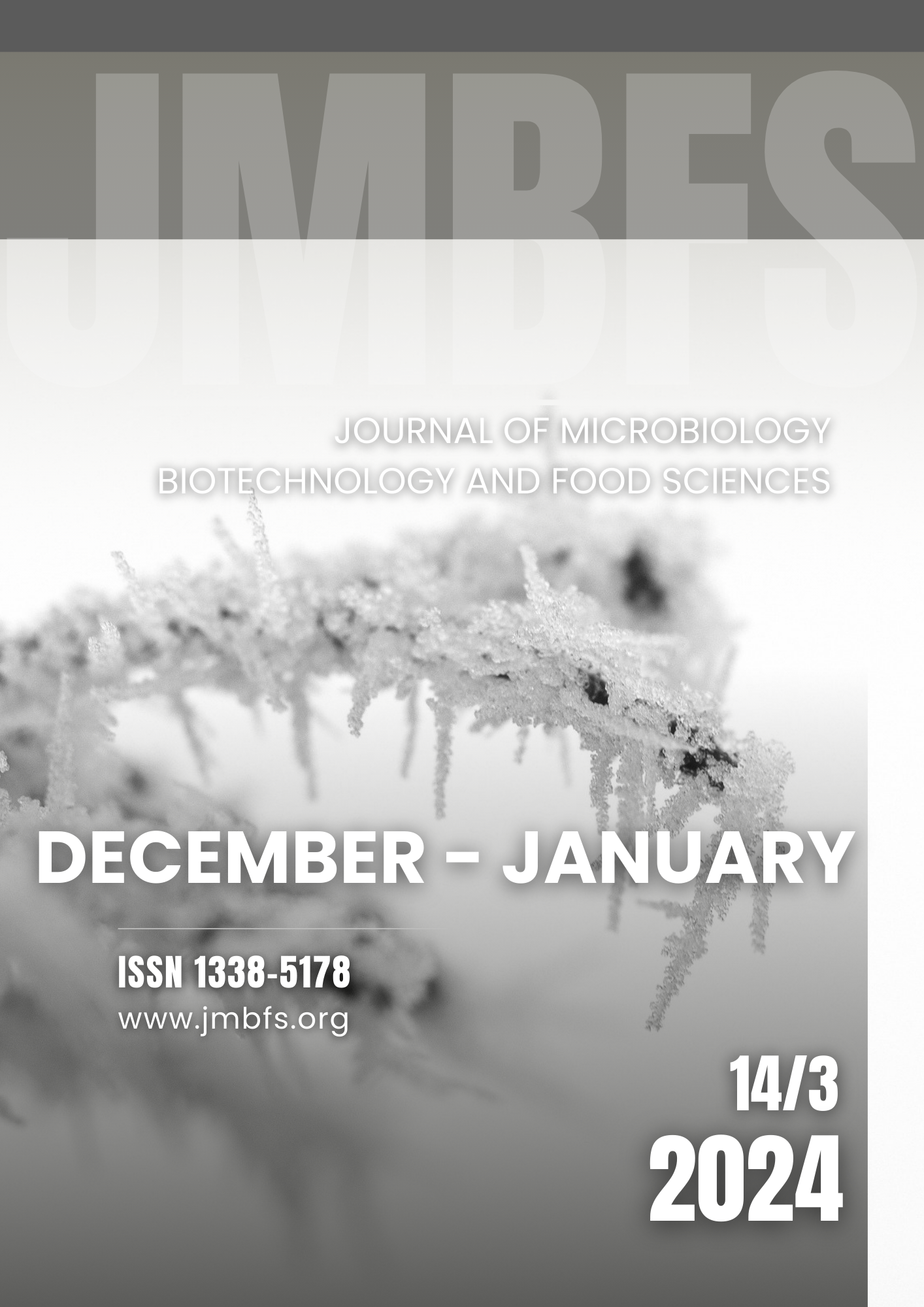ANTILISTERIAL ACTIVITY OF CBD FOR THE PREVENTION OF LISTERIA MONOCYTOGENES IN DAIRY PRODUCTS
DOI:
https://doi.org/10.55251/jmbfs.10659Keywords:
CBD, Listeria Monocytogenes, antimicrobial studies, dairy produceAbstract
Research background. Herbal antimicrobials exist in plants and their derived compounds. One such compound is cannabidiol (CBD) extracted from the plant, Cannabis Sativa, also referred to as hemp or marijuana, has drawn interest for its alleged antibacterial and antioxidant abilities. With the increasing problem of antibiotic resistance and the desire to reduce antibiotics in the food industry, researchers are exploring the potential of cannabinoids as an alternative antimicrobial agent. The use of cannabidiol (CBD) in food and beverage products is a growing trend, it is also important for manufacturers to approach this new area with more studies. Milk is a key component in the production of most dairy produce. The products made from milk usually undergo various processes such as pasteurization, fermentation, curdling, and aging to create the final product. This study aims to examine the potential of CBD isolate as a antimicrobial agent which can be used in dairy products to reduce microbial growth and extend their shelf life.
Experimental approach. This paper investigated the antilmicrobial properties of CBD against L. monocytogenes in milk as the key solvent to perform studies. The minimal inhibitory concentration (MIC) and minimal bactericidal concentration (MBC) of CBD in TSB was carried out at 37 °C in 24 h. CBD’s antilisterial activity was found for whole milk and skim milk at 4°C for 3 days by analyzing their respective growth and kill curves.
Results and conclusions Both the MIC and MBC for L. monocytogenes was found to be 2 µg/mL measured by dilution series and plating, respectively. CBD significantly slowed the growth of listeria populations in milk but its effectiveness of CBD was dependant on the fat content of milk. In this paper, we have discussed the potential for using and improving CBD as a preservative to combat L. monocytogenes in dairy products that use milk as a primary ingredient.
Downloads
Downloads
Published
How to Cite
Issue
Section
License
Copyright (c) 2023 Kazi Tahsin, David Watson, William Xu, David Heinrichs, Amin Rizkalla, Paul Charpentier

This work is licensed under a Creative Commons Attribution 4.0 International License.
All papers published in the Journal of Microbiology, Biotechnology and Food Sciences are published under a CC-BY licence (CC-BY 4.0). Published materials can be shared (copy and redistribute the material in any medium or format) and adapted (remix, transform, and build upon the material for any purpose, even commercially) with specifying the author(s).





